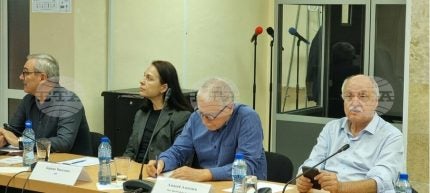
Tsanko Bachiyski, Chairman of Bulgaria’s Nuclear Regulatory Agency (AYaR – Agentsiyata za Yadreno Regulirane) has said Bulgaria can store used nuclear fuel at least until 2032, as there is sufficient space at existing facilities. AYaR specified that the term for dry storage of used fuel is 50 years while storage under water depends on the capacity of the facility. “We can safely hold our fuel for many years, creating conditions for safe storage,” Bachiyski told a journalist seminar. He was adamant that there is enough time to resolve the matter of the fuel’s final disposal.
The Agency said that every Eastern European country stores its used fuel the same way as Bulgaria. This issue is yet to be resolved definitively globally. To date, Finland and Sweden are the only countries where sites have been selected for the storage of vitrified high-level waste in deep geological repositories.
Bachiyski reported that the storage of low- and intermediate-level waste in Bulgaria can be considered resolved. It will take place at the Radiana site on the premises of Kozloduy NPP, which should be licenced to operate in 2025.
Bachiyski said that until recently used fuel from Kozloduy NPP had been sent to Russia for reprocessing after which the resulting high-level waste should be returned to Bulgaria for disposal. As yet, no such waste has been returned, and within the next decade Bulgaria will draft a methodology to determine the exact amount and kind of waste to be returned. This has been delayed due to the local geopolitical situation. Bulgaria last shipped 192 used nuclear fuel cartridges to Russia in 2022.
Bachiyski also reported that there were no problems or deviations from the norms after loading fresh nuclear fuel supplied by US Westinghouse at unit 5 of the Kozloduy NPP. He noted that, after the unit is shut down for scheduled repairs in April 2025, experts will verify the condition of the fuel, but no problems are expected.
AYaR licensed the use of Westinghouse fuel for Kozloduy unit 5 in April. Currently, Kozloduy NPP operates two Soviet-built VVER-1000 reactors (units 5&6). Bulgaria was obliged to close four older VVER-440 units as a condition for accession to the European Union, even though the units had undergone significant safety upgrades. Plans to build a new NPP at Belene comprising two VVER-1000 reactors was cancelled in face of political and financial difficulties after the equipment was manufactured and supplied by Russia. Those reactors, now in storage at Belene, may be transferred to Ukraine for use at the Khmelnitsky NPP pending an agreement on costs.
Two new Westinghouse AP1000 units are planned for Kozloduy 7&8. Westinghouse was awarded a front-end engineering & design contract with Kozloduy NPP subsidiary, Kozloduy NPP-Newbuild (KZNPP-NM – Kozloduy NPP Novi Mostnosti) in June 2023. While the units are to have Westinghouse AP1000 reactors, Westinghouse will not take part in the construction but will retain overall control of the project. South Korea’s Hyundai Engineering & Construction (Hyundai E&C), part of Hyundai Corporation has been selected to undertake the construction.






